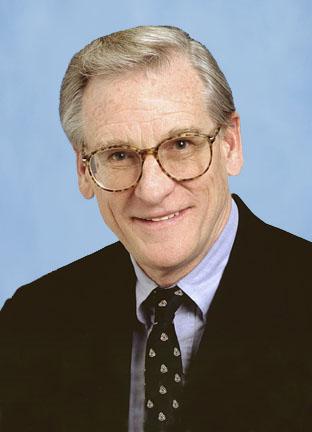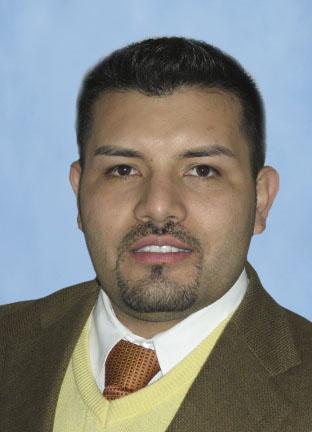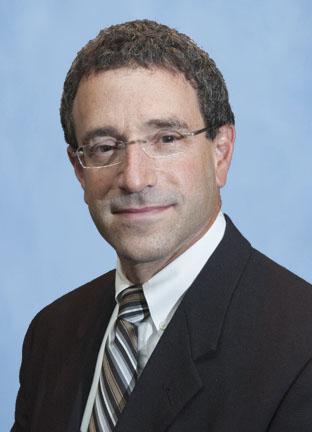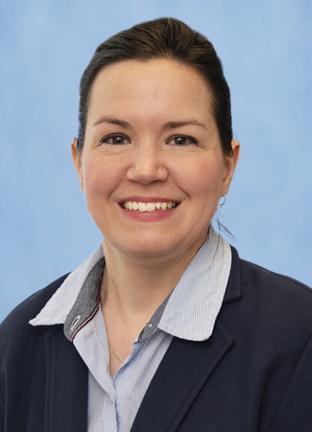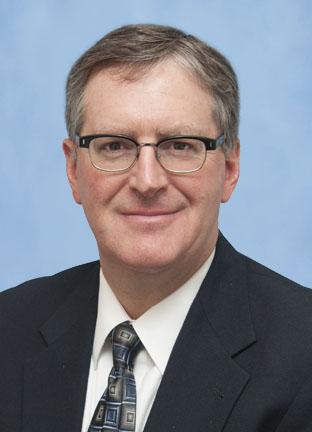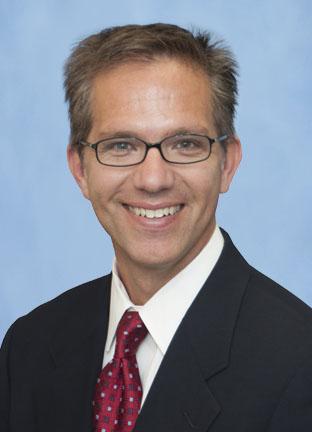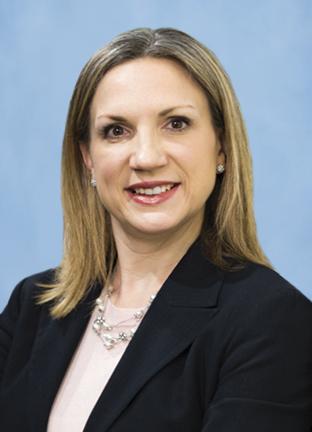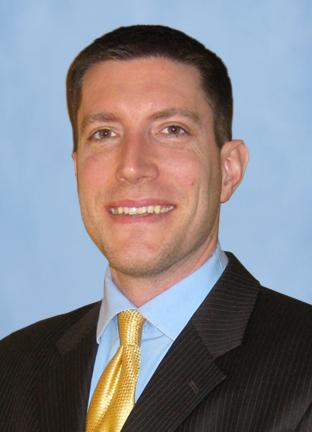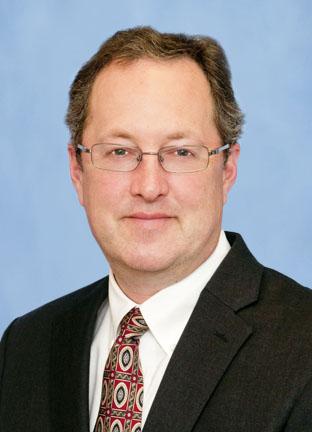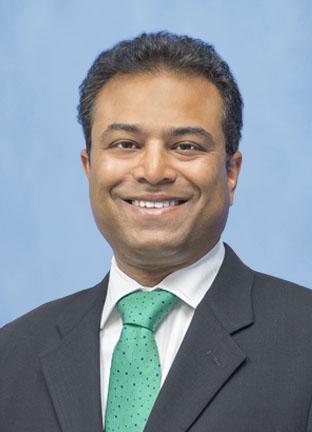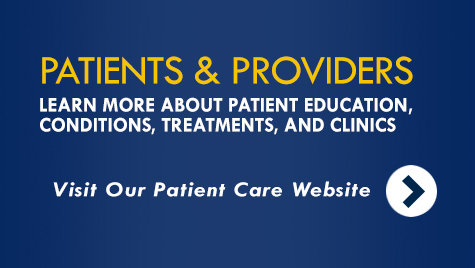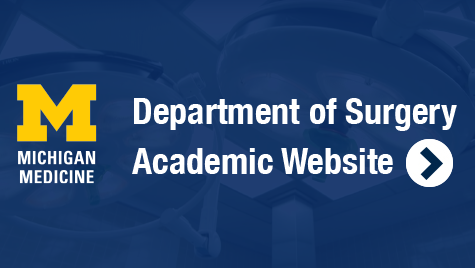Residents & Research Fellows
If you are planning time out from the clinical residency to do research after your third year, you might want to consider joining the Extracorporeal Circulation Laboratory. The ECLS laboratory in the Department of Surgery has been training academic surgeons for more than 25 years. More than 60 surgeons have worked in the laboratory, most of whom are in major academic centers. The lab team includes surgical research fellows from around the country and around the world.
Faculty supervising the lab are Drs. Bartlett, Hirschl, Haft, Punch, Bocks, and Mychaliska. There are many research projects underway in the laboratory all related to the physiology, pathophysiology, bioengineering and treatment of cardiac and pulmonary failure. The specific projects currently underway include:
- Development of a nonthrombogenic surface for artificial organs
- Development of a pediatric implantable artificial lung
- Development of liquid fluorocarbon ventilation
- Evaluation of devices and techniques for prolonged life support in acute cardiac pulmonary failure
- The mechanism of blood damage during cardiopulmonary bypass
- The use of extracorporeal circulation to resuscitate organs for donation and transplant
- Development of an artificial placenta for premature births organ culture
Residents can combine laboratory and clinical aspects of these projects. Laboratory experience can range from one to several years. The laboratory has been continuously funded by NIH since 1971, and the experience includes grant writing, grant administration and learning the details of NIH and other funding institutions.
The ECLS laboratory has been an excellent training ground for residents planning careers in academic critical care, trauma, pediatric surgery and cardiothoracic surgery. For further information please visit the laboratory in MSRB II level B.
Graduates & Post-Doctoral Candidates
From 1970 to the present hundreds of graduate students and fellows have begun their research careers in the ECLS Lab at UC Irvine and University of Michigan. Many of these fellows are now leaders in medicine and bioengineering; in academics, industry and practice. They are the most important product of the lab. These fellows have done the research that has led to routine use of artificial organs in critical care. ECLS for cardiopulmonary failure, CRRT for renal failure, TPN for nutrition, and liver support for hepatic failure are based in part on lab and clinical research from the ECLS lab.
For the individual research fellow, the time in the ECLS lab is the beginning of a ten year program resulting in the solution to an important problem, recognition as the expert in that topic, and appointment at the associate professor level (or equivalent in practice or industry. The goal of the lab is to provide each fellow with the knowledge, competence, and confidence to become a leader in physiology and artificial organ research and practice. The specific goals are:
- Develop a thorough understanding of critical care physiology and pathophysiology. The references are Moore, Metabolic Care of the Surgical Patient and Bartlett, Critical Care Physiology
- Develop a thorough understanding of the history and applications of artificial organ research. The reference is ASAIO Gold, the 50th anniversary volume of ASAIO.
- Develop a thorough understanding of extracorporeal circulation and extracorporeal life support. The references are Galletti, Extracorporeal Circulation and The ELSO Red Book.
- Set up and manage a large animal research laboratory, including:
- Grants and contracts, NIH system, industrial contracts
- Space and equipment, lab organization
- Animal handling, anesthesia, humane care
- Regulations, FDA, UCUCA, IRB, COI
- Research Planning and conduct
Focus on a research project which is important (for science and for funding), has potential clinical application in 5 years, and is solvable in 10 years.
Design and conduct a specific research project, including:
- Research plan, methods, design, models,
- Experiments, records, analysis, data review
- Adapting to changing conditions and findings, following the research
- Knowing the ultimate aim of each part of the project, and including all the team
- Become competent at presentation, publication, abstract and paper writing, grant writing.
Medical Students
Each project in the ECLS Laboratory has its own background recorded in the scientific literature, a research team, specific goals and milestones, an experimental model (a standardized test system), a schedule, financial support, and a clinical application (is intended to be used for human patients). You will be assigned to one or more of these projects.
There is a laboratory meeting every Thursday at 4PM where all the projects are reviewed and discussed. The schedule for experiments is defined at this meeting and you may be assigned to work on other projects depending on the schedule. Your primary project will have a research team headed by the research fellows. The lab team will have its own schedule of experiments and meetings to review data and prepare presentations and publications.
There are weekly meetings devoted to students in the laboratory. Your own work schedule will depend on the research project, not on clock hours. You are expected to be present when the experiments on your project are going on, even if those experiments begin early and run overnight. If there are no experiments or data reviews planned for your specific project, you will be assigned to, or may join into, other experiments underway on that day. You will probably be assigned to some overnight experiments from time to time. If you will be gone from the laboratory on any day, just let your team leader know.
Your role on the research team will be to become thoroughly educated on the background and current status of your project. Learn to read the literature and understand the methods. Always ask yourself the question “why are we doing this?”. You should know the ultimate clinical goal and the immediate research goal of each step of the project. Keep a personal research notebook recording the events on your project. Your team leader will keep the official records, you keep your own notebook for future reference. You will have a personal project which is a small part of the overall research project. This will be narrow in scope but manageable within a few weeks or months. You may eventually present this project at a research meeting or even bring it to publication.
Most of the students in the laboratory will receive academic credit if they are enrolled at the University of Michigan, or a small financial stipend. You should consider the stipend a small payment for your laboratory activities (not an hourly salary).
If your research project is done well, and if it answers an important scientific question, we will present it at scientific meetings and publish it in a scientific journal. If you made a major contribution you will be included as an author on the paper. (The paper might be published months or years after your own participation in the laboratory). Having your name as an author on published papers is a major benefit of working in the laboratory and will enhance your chances of progressing to the next step in your career.
Undergraduate Students
The ECLS Lab is a collective of several faculty members. The primary faculty members supporting the lab are Dr. Robert Bartlett, Dr. Alvaro Rojas, Dr. Ronald Hirschl, Dr. George Mychaliska, Dr. Jeffrey Punch, Dr. Joe Potkay, Dr. Mark Meyerhoff, and Dr. Jonathan Haft. Dr. Bartlett is the senior investigator within the laboratory. Dr. Rojas runs most day-to-day operations within the lab and manages the work of the undergraduates. Dr. Rojas is assisted in managing undergraduate students by Marie Cornell.
The laboratory runs a wide variety of surgical and bioengineering research projects, including the development of artificial lungs, artificial kidneys, biomaterials, and techniques for expanding the pool of donated organs. Artificial lungs are a particular focus, with work on several different generations of implantable artificial lungs, new gas exchange membranes, and new applications for these devices, such as an artificial placenta.
Up to 40 undergraduate students work on these projects every year. The number varies depending upon the time of year, and what projects are active. The student’s work is in various capacities, but here are some of the more common:
- University Research Opportunity Program (UROP): This University of Michigan program is intended to introduce young students to research, while rewarding them with class credit or salary. If you are in UROP, we interview for projects in September of every year. Contact Dr. Rojas ([email protected]) as soon as possible if you are interested in the lab. There are 5 applicants for every position, and they are filled quickly. If you are interested in UROP(link is external), please contact them as early in your education as possible as they develop a waiting list.
- Surgery 499 – Surgical Research: Surgery 499 is hands-on course that allows students to participate in a wide variety of surgical research projects. The course teaches basic concepts in surgery, anesthesiology, critical care, and animal physiology in addition to specific research topics. These topics vary semester to semester but typically focus on artificial organs (lung, kidney, etc.), advanced life support techniques, organ transplantation, biocompatibility testing of devices, and a wide variety of projects from industrial partners. Students learn in a hands-on environment with supplementary reading. The course requires four hours of class time per credit hour in the fall and winter and eight hours per credit hour in the spring and summer. The course can be taken for any number of credits, but we recommend taking it for 2-3 credits. Grading is based on attendance (25%), effort (25%), comprehension (25%), and a take home final (25%). If you are interested, contact Dr. Alvaro Rojas ([email protected]). An initial interview is necessary to obtain an override.
- Volunteer: There are usually opportunities for students to volunteer in the lab. Many of these volunteer positions involve evening and weekend work. If you are interested, send your contact information to [email protected].
- Paid, hourly temporary employee: Typically, students are only given paying positions in the lab after achieving considerable experience in the lab via any of the above mechanisms. The one possible exception may be if the student has work-study. Please contact Marie Cornell ([email protected]) if you feel you qualify for paid employment.
Volunteers
The ECLS Lab depends heavily on the work of volunteers. Volunteers in the lab often go on to become Surgery 499 or MCDB students, have paid positions within the lab, and attend medical school. Many ECMO lab alumni have gone on to attend graduate or medical school and accomplish great things in the medical and biomedical engineering fields.
If you are interested in volunteering, please contact [email protected]
What is expected of volunteers in the ECMO lab?
- Fulfill a minimum time commitment of 6 hours per week (Volunteers are needed 24 hours a day, 7 days a week.)
- Complete 6 to 8 hours of required training before beginning work in the lab
- Strictly adhere to lab and UM medical research policies
- Be timely, responsible and dependable
- Be educated about the lab (Please review the ECLS Lab website to learn more information about us.)
Steps to Become a Volunteer
- Interview: Interviews are usually scheduled the first week of Fall, Winter and Spring Semesters.
- Attend orientation: Selected volunteers are invited to orientation, typically held the 3rd week of every semester.
- Complete online training: All online training must be completed within 7 days of receipt.
- Train in person: In-person training can take up to 3 months.
- Volunteer on your own: All volunteers must complete at least one 6-hour shift per week.

